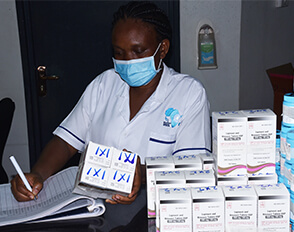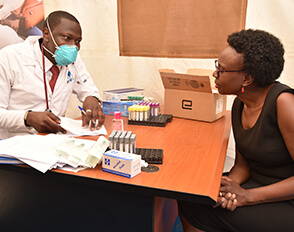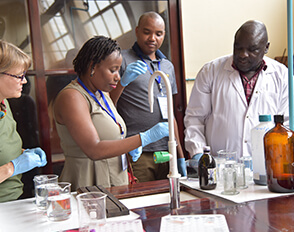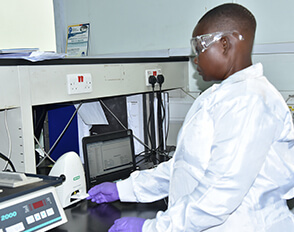
Acute febrile illnesses (AFI) are common in Uganda. These diseases present with fever of short duration and generally require laboratory testing to establish an accurate diagnosis. When specific testing is unavailable, these diseases may be misdiagnosed as common endemic diseases such as malaria.
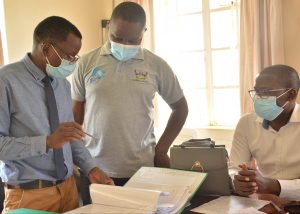 However other diseases are increasingly important including bacterial and viral infections. Misdiagnosis wastes limited healthcare resources, and it can increase morbidity and mortality.
However other diseases are increasingly important including bacterial and viral infections. Misdiagnosis wastes limited healthcare resources, and it can increase morbidity and mortality.
IDI received funding from the US Centers for Diseases Control and Prevention to support the Ministry of Health implement AFI surveillance in regional referral and district hospitals in Uganda.
In collaboration with other partners, IDI is leading the implementation of an ethics-approved protocol for AFI under the Ministry of Health (MOH) National Integrated Surveillance System (NISS) framework.
Objectives of the AFI Surveillance Project
- Identify etiologies and define the epidemiology of AFI among children, adolescents, and adults attending referral hospitals in Uganda.
- Build and strengthen sustainable surveillance, laboratory, and information systems to improve epidemic intelligence across multiple priority outbreak-prone febrile illnesses in Uganda.
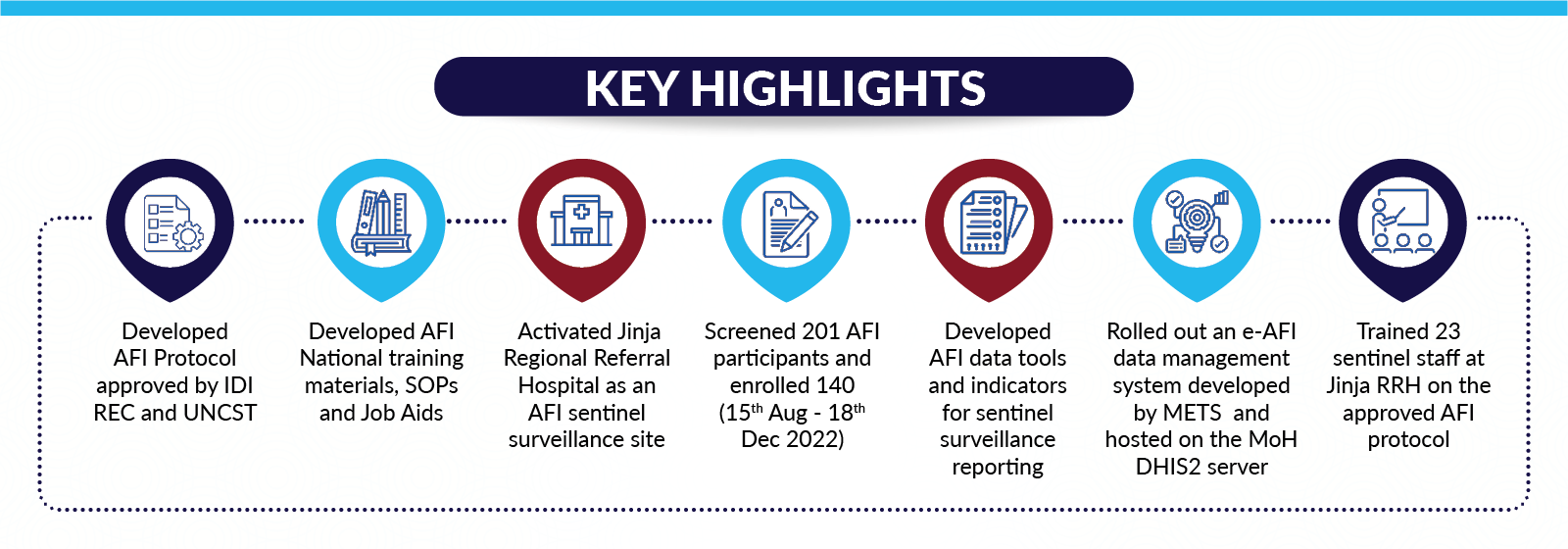
Success Stories

